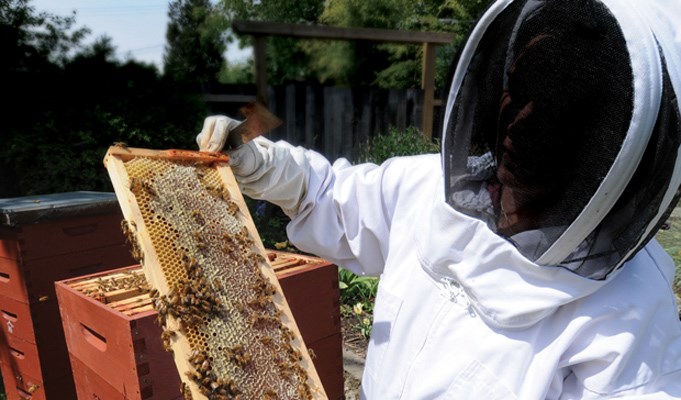Canadian beekeepers are warning consumers to read honey labels carefully after a sudden increase in imports from some unusual locales.
Shipments of ultra-cheap honey to Canada from Thailand, Vietnam, Myanmar and Taiwan has raised eyebrows at the Canadian Honey Council, which suspects that honey is being “trans-shipped” to disguise its true origin. Unprecedented shipments of honey from Saudi Arabia, Moldova and Zambia during the first quarter of 2016 are equally puzzling, according to executive director Rod Scarlett.
China — the world’s top honey-producing nation — shipped just $910 worth of honey to Canada during that period, while shipments from its immediate neighbours totalled more than $1.1 million.
But Scarlett suspects that most of the honey entering Canada is produced by China, shipped by third parties in an elaborate honey-laundering industry. Worse, it may not be honey at all but a blend of honey and corn syrup.
“We have a serious food-fraud problem,” he said.
Earlier this year, U.S. federal agents in Chicago seized 55 tonnes of honey from China that was accompanied by fake documentation from Vietnam. A second 55-tonne shipment of Chinese honey from Vietnam was seized by Homeland Security agents last week. Lab tests revealed “the honey had a greater than 99 per cent probability match with honey from China,” according to U.S. Immigration and Customs Enforcement.
The U.S. Department of Commerce levies a tariff of more than $2 per kilo on Chinese honey and federal authorities have uncovered surprisingly elaborate global schemes to bring honey from China into the country. Those investigations also revealed that exporters were stretching their product with syrup.
“Honey is coming to Canada from countries that have no tradition of honey production, so we know its being trans-shipped,” said Scarlett. “That honey — and I use the term loosely — is 50 cents a pound cheaper so it drives down the price for everyone.”
The price paid to Canadian producers has fallen from $5.35 per kilo last year to about $2.85 this year, below the cost of production for most apiarists, Scarlett said.
“This is having a huge impact on honey producers, especially on the Prairies where most of the bulk honey for export is produced,” said Scarlett. “Typical cost of production is around ($3.30/kg) so there are a lot of guys sitting on honey or selling it at a loss just for the cash flow.”
The council has appealed to federal Agriculture Minister Lawrence MacAulay for financial relief by adjusting the terms of agricultural income stability programs.
Most beekeepers in British Columbia are insulated from price instability, because much of the honey produced in B.C. is sold locally, often as an artisanal product with a premium price tag, according to Nanaimo-based beekeeper Stan Reist.
Consumers can protect themselves from food fraud by buying honey at farmers markets and from local producers. In the grocery store, read labels carefully to find the country of origin. Some labels carry the words Canada No. 1, but that refers to the grade of the product, not its source.



